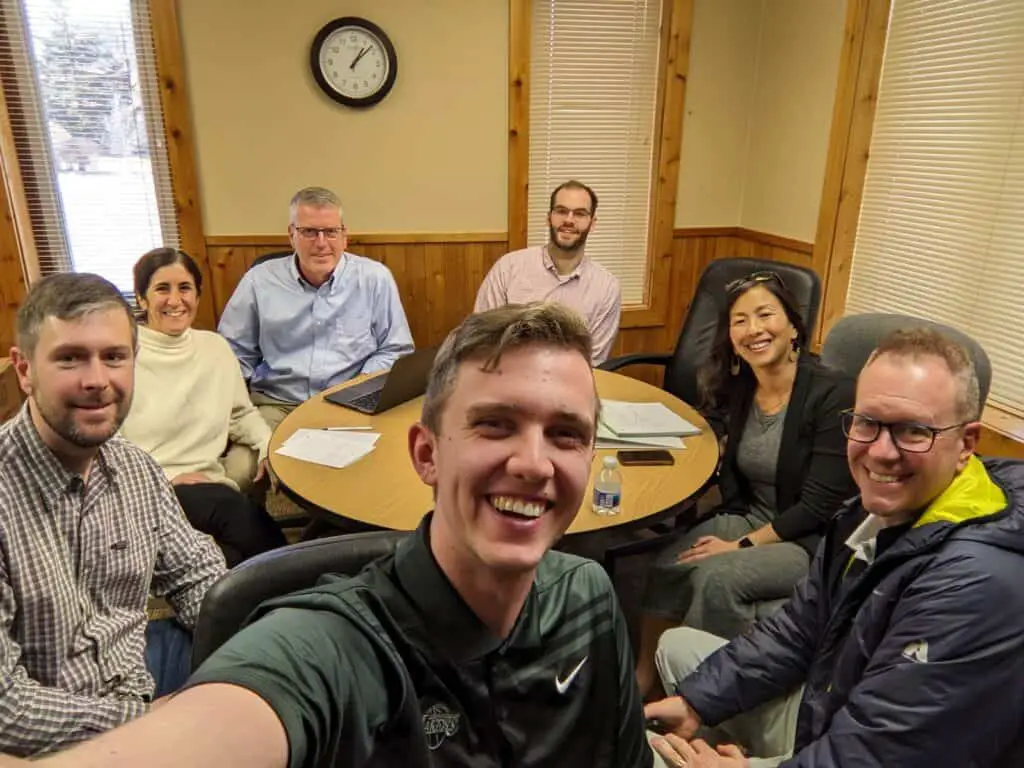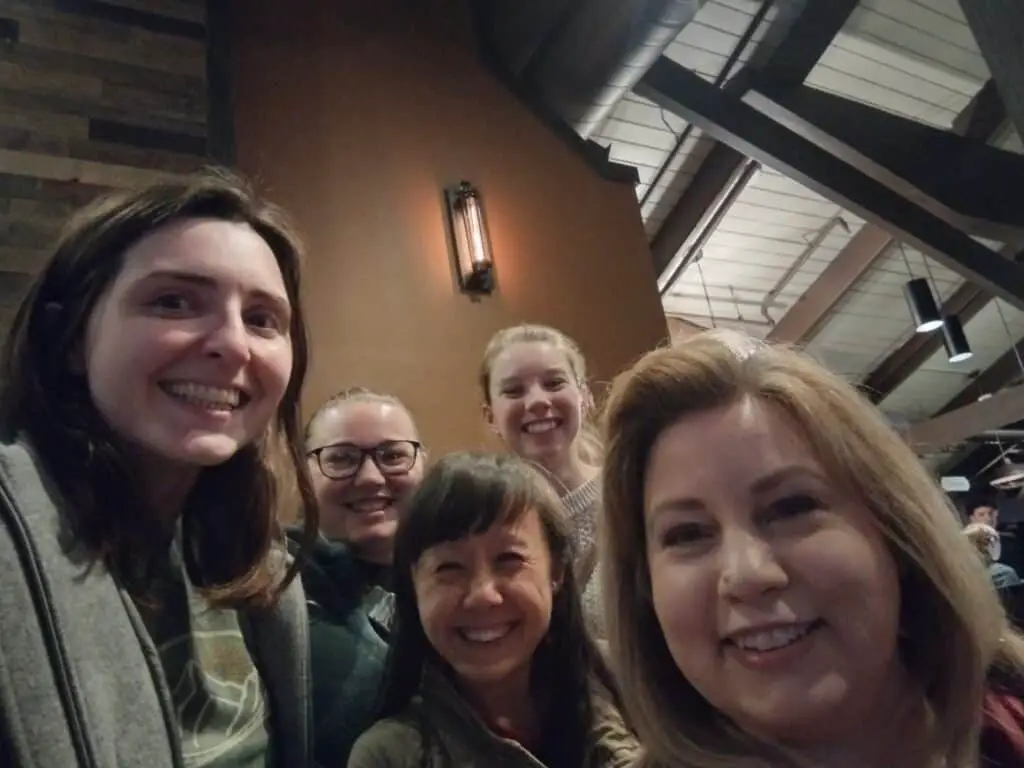Did you just move to a new city where you don’t have any connections? Maybe your old social life slowly died away. Fortunately, there is hope for getting your social life back.
Building and maintaining a social life requires knowing what you desire socially, determining your interests, finding others that share those interests, communicating well, and nurturing connections.
That may sound like a lot of work (because it is), but the benefits are well worth it. Let me show you what I mean.
The Importance of Getting a Social Life
Having a social life is essential for overall well-being and happiness. Social connections provide support and comfort during challenging times and can help relieve feelings of isolation or loneliness.
Additionally, spending time with friends and loved ones can improve mental health and reduce stress levels. A healthy social life can also promote personal growth and development, as interactions with others can broaden perspectives and introduce new ideas and experiences.
Participating in social activities also provides opportunities to network and build relationships that may lead to new opportunities, both personally and professionally. Ultimately, a rich social life can lead to a more fulfilling and satisfying life overall.
There are a bunch of reasons why meeting new people is so important and helpful in this article, just in case you’re still on the fence.
Reasons you may need to build a social life from scratch
There are many reasons you may need to build a social life from scratch. Perhaps you’ve moved to a new city or country, leaving behind your friends and family.
I’ve moved to a new place with few to no family and friends on multiple occasions. The connection side of things didn’t go so well after the first move, but it is going great now after the second. If you’re feeling hopeless, all is not lost!
You might’ve instead gone through a major life change, such as divorce (I’m sorry if that’s the case), and need to start fresh. Making new friends can be difficult and scary, especially if you’re shy or feel awkward around people.
Finding people with similar interests and values is a sadly lengthy process. Even though building a social life from scratch may seem daunting, it’s important to put yourself out there and make an effort to connect with others because of the benefit a thriving community brings.

Figure Out What You Want Your Social Life to Look Like
Do you want to spend most of your time with family, or would you rather have a group of close friends? Do you want to have a regular schedule of social events, or do you prefer to keep things spontaneous?
It’s critical to identify what you value in your relationships and what makes you feel fulfilled. Think about the types of people you enjoy spending time with, and what you like to do with them, and create a plan that caters to those desires.
It takes time to improve your social situation, but with a clear vision of what you want, it gets immensely easier. Things may not always go your way, but you’ll know when the right social opportunities come along.
Self-awareness and knowing yourself
Self-awareness is crucial when it comes to knowing the kind of social life you want to have.
Firstly, self-awareness helps you understand your personality traits, strengths, and weaknesses. This helps you know how you come across to others and play to your strengths.
Secondly, self-awareness helps you identify your social preferences and values. This means knowing what kind of activities and topics you enjoy discussing and the kind of people you want to hang out with.
Finally, self-awareness helps you identify the social circles and relationships that drain your energy and those that enhance your life. Having an awareness of how different social situations impact you can help you make informed decisions about who to spend your time with and what kind of social situations to avoid.
Identifying your social needs: quantity and quality
Human beings are social creatures, and as such, we all have social needs that need to be fulfilled. These social needs can be divided into two categories: quantity and quality.
Quantity refers to the number of social connections and interactions that an individual needs to feel fulfilled. Some people are satisfied with just a few close friends, while others require a large group of acquaintances to feel fulfilled.
Quality, on the other hand, refers to the depth of these connections. Meaningful, authentic connections with people who share our values and interests are essential to our well-being.
Research has shown that social connection is linked to better physical health, mental health, and overall happiness. Identifying your social needs can help you determine the kind of relationships that you need to cultivate to feel fulfilled and happy in life.
If you’re not sure about your social needs, here’s a deeper article for determining how often you should socialize.
Determine Your Interests
Identifying the things that bring you joy or a sense of purpose can help to narrow down potential social activities and groups that you may enjoy.
One way to start is by taking inventory of past hobbies or interests that may have fallen by the wayside due to a busy schedule or lack of social support. Additionally, think about any curiosity or curiosity about topics or activities that exist outside your comfort zone.
Some of these interests might include things like playing sports or participating in outdoor activities like hiking or biking. If you prefer quieter activities, you might enjoy reading, painting, or attending music concerts.
Don’t be afraid to try new things and step outside your set routine or comfort zone. Knowing your interests can make it easier to connect with like-minded individuals and form authentic connections within a community that shares your passions.

Identify Ways to Meet People
Meeting new people can be exciting, but it can also be daunting. Fortunately, there are many ways to expand your social circle and create new connections with people who share your interests or goals.
If you’re not sure how much you should be meeting new people, this article takes a deeper look to help you out.
In-person communities, clubs, and events
In-person communities, clubs, and events around shared interests are great ways to build a social life. Reference the interests you laid out in the last step to figure out which might be best.
Whether it’s joining a local sports team, volunteering for a charity, attending a book club, or attending a music festival, there are plenty of opportunities to meet other like-minded individuals.
These groups and events provide a sense of belonging and can help individuals connect with others who share similar values and interests. Plus, they offer opportunities to try new things and gain new experiences, making social interactions much richer and more fulfilling.
Through these groups, making new friends, building meaningful relationships, and creating unforgettable memories is possible. Joining a community or activity is a great solution for those looking to add more excitement and social interaction to their lives.
Online platforms, communities, clubs, and events
Online platforms, communities, clubs, and events can also provide great social benefits. With the advent of digital technologies, connecting with like-minded individuals has become much easier, irrespective of your location. Social media sites like Facebook, Twitter, and Instagram give you access to hundreds of thousands of people who you can interact with.
Online communities through platforms like Discord can provide meaningful interactions with a much lower commitment level than in-person communities might have.
Pros and cons of each method
In-person and online ways to build a social life both have their own advantages and disadvantages. Meeting people in person allows for a more holistic interaction, where you can read body language and facial expressions. This also allows for the formation of deeper connections and the possibility of creating long-lasting friendships.
However, it can also be time-consuming and not always feasible, as was the case during the pandemic. Online ways to build a social life provide the convenience of connecting with anyone from anywhere at any time.
This can be especially helpful for those with busy schedules or limited mobility. However, online interactions may lack the personal touch and can lead to miscommunications due to the absence of non-verbal cues.
It’s important to strike a balance between both in-person and online interactions to create a well-rounded social life.
Prepare Yourself to Meet New People
Meeting new people can be exciting, but it can also be overwhelming if you’re not prepared. Before attending events or gatherings, take some time to mentally and emotionally prepare yourself. Remind yourself that it’s okay to be nervous and that others may be feeling the same way.
Overcoming social anxiety and nervousness
Overcoming social anxiety and nervousness when meeting new people can be a daunting task. However, there are many techniques and tips that can help you feel more at ease in social situations.
First and foremost, it is important to remember that most people are just as nervous as you are, and chances are, they are not judging you as harshly as you might think. People spend most of their time focused on themselves, which takes the pressure off of little mistakes you may think you’ve made.
It can also be helpful to prepare ahead of time and have a few conversation topics in mind to help break the ice. Finally, exposing yourself to social situations gradually and regularly can help you build confidence and overcome social anxiety in the long run.
Remember, it’s normal to feel nervous, but with a little practice and patience, you can learn to feel more comfortable and confident when meeting new people.
Build confidence and improve communication skills
When it comes to meeting new people, building confidence and improving communication skills can make all the difference in making those initial interactions easier. It’s natural to feel nervous when meeting someone for the first time, but by practicing good communication tips and techniques, it can help to alleviate some of that anxiety. Speaking clearly, listening actively, and being mindful of body language are all key elements to successful and engaging conversations. Confidence can also play a role in making meeting new people more comfortable. By developing a positive self-image and focusing on strengths and abilities, an individual can project an aura of self-assuredness that can make others feel at ease. By making a conscious effort to build confidence and improve communication skills, meeting new people can become an enjoyable and enriching experience.
Appearance can make a difference when meeting new people
There may be some who say that you need to dress to impress. I say dress in what makes you comfortable and confident (clothes that fit your body well and that you like) that fit the social situation. Don’t overthink it!
When in doubt, business casual is a good place to be as it doesn’t stick out too much in a more casual environment but doesn’t leave you to underdressed in more professional settings.
Remember, your clothes don’t need to stick out or be memorable. Your personality is awesome enough that your clothes just need to not fight against the environment you’re in.

Work on Your Communication Skills
To make social interactions smoother, you need to hone your communication skills. Learn how to listen actively, use proper body language and tone, and practice effective speaking.
You don’t need to be an expert by any means. Simply giving attention to your communication skills will gradually level them up. Even if you’re a novice now, with time and effort, you can bring pizzazz to any social interaction.
Practice active listening
When meeting new people, it’s important to practice active listening. This means actively engaging with the person and paying attention to what they are saying.
There are a lot of things people say about active listening, like making eye contact, nodding, and leaning in. These aren’t bad to do, by any means, but the trick to listening isn’t a few cookie-cutter body movements and questions. Being genuinely curious about the person you’re talking to is the ultimate active listening hack.
When you’re curious, you’ll figure out questions to ask that will take the conversation down fun paths that will create fulfilling interactions and experiences for both parties.
Learn how to communicate assertively and effectively
Meeting new people can be intimidating, but learning how to communicate assertively and effectively can help ease the nerves.
You don’t have to be bossy to be assertive. Just be confident. If you’re always mumbling because you don’t think people will care what you have to say, they probably won’t be able to hear you enough to engage with you. So say things directly and with confidence.
Have you ever noticed that there are some people who say things that make no sense but still have people who listen to them? Chances are they speak with a lot of confidence.
If you can grow your confidence with direct and effective communication, the sky’s the limit.
How to Approach and Form Connections
Approaching and forming connections with new people can be daunting, but it is an essential part of personal and professional growth.
Be friendly and approachable
Making new friends can be exciting, but it can also be intimidating. One way to make the experience enjoyable is to be friendly and approachable when meeting new people. Smile, make eye contact, and offer a warm greeting to show that you are open to meeting someone new. Handshakes create trust with someone new through touch.
Don’t forget about the ultimate social hack of being curious about others, as that will automatically make you more approachable.
Show interest in others and ask questions to break the ice
When meeting new people, it is essential to show interest in them and ask questions about their lives, hobbies, interests, and goals. It helps to make them feel valued and creates an opportunity for building meaningful connections.
Initiating a conversation may seem difficult, but questions such as “What passion projects are you working on right now?” are an excellent way to break the ice without being superficial or too invasive.
By showing interest in others, we can learn from their experiences, perspectives, and challenges, which can add value to our own lives.

Maintaining a Balanced Social Life
It is important to have a group of friends or social connections that you can spend quality time with, but it is equally important to make sure that this does not take over your life and entirely control your schedule.
It can be easy to become too consumed in social events and lose focus on other important areas of life such as work or family. Therefore, setting boundaries and prioritizing your responsibilities are important actions to maintain a balanced social life.
Avoiding overcommitment: Importance of setting boundaries
Avoiding overcommitment is crucial for maintaining mental and emotional well-being. Setting boundaries in your social life is an essential step toward achieving balance and productivity in your personal and professional endeavors.
Saying no is difficult. You want to spend time with people and don’t want to disappoint them. Setting up boundaries around your time, like avoiding certain activities because you know you hate them. It could also be a few times of the week that are carved out for a project or some me-time.
Saying yes to every invitation or demand can lead to a feeling of exhaustion and burnout, which can significantly impact your relationships, work, and health. When you set boundaries, you can prioritize your time, energy, and attention toward what matters most to you.
Diversity in friendships and social circles
Building friendships with people from diverse backgrounds allows for exposure to a range of beliefs, values, and traditions, leading to greater understanding and respect for different cultures in addition to expanding our own worldview in healthy ways.
Friendships formed in diverse social circles require flexibility, open-mindedness, and the willingness to listen and learn. It is not just about interacting with people from different ethnicities or religious backgrounds, but also about being able to build relationships with people from different age groups, socio-economic statuses, and career fields.
By embracing diversity in our friendships and social circles, we can create a more inclusive, supportive, and harmonious community.
Prioritizing time for oneself
It can be challenging to balance building a social life while prioritizing time for oneself; however, it’s essential to allocate some time for oneself to avoid burnout and feel more rejuvenated.
Setting aside time for self-care activities, such as exercise, meditation, or hobbies, can help maintain overall well-being. It’s okay to do these activities with a friend as long as it’s a rejuvenating experience.
It’s also crucial to have the ability to say “no” to some social events (as mentioned earlier) that may not align with one’s values or schedule.
Maintaining and nurturing healthy relationships
Healthy relationships require ongoing effort and communication, which involves honesty, respect, and understanding.
Open communication, listening, and respecting each other’s boundaries and needs are vital components of a healthy relationship. It’s important to take time to express appreciation for the other person, show kindness, and support them during difficult moments.
It can be hard to find time for people, especially those you’re really comfortable around, but continue to nurture those relationships.
My childhood best friend and I move to different parts of the country, figuring out how to be adults for a few years without really talking. She got married and I was working hard and pursuing a graduate degree. I’m a big Kobe Bryant fan, so when he died, she reached out and we reconnected. When COVID hit, we were able to support each other by playing games online together.
I’ve since gotten married and moved. She and her husband later also moved, and now we only live an hour away from each other. Last weekend, we visited them and ended up just talking for 8 hours, which was just so fun! None of that would’ve happened if we didn’t both take the time and effort to reconnect and nurture our relationship.
Ultimately, getting a social life takes work, and you’ll make a lot of mistakes along the way. That’s okay! Just stick with it, using this guide as a starting point from which to go out there and make your own fulfilling life. You got this!

